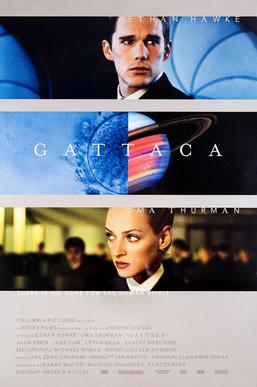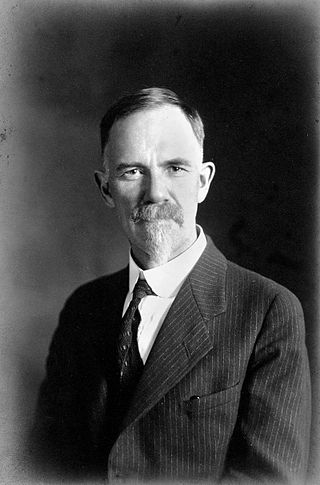Related Research Articles
Eugenics is a fringe set of beliefs and practices that aim to improve the genetic quality of a human population. Historically, eugenicists have attempted to alter human gene pools by excluding people and groups judged to be inferior or promoting those judged to be superior. In recent years, the term has seen a revival in bioethical discussions on the usage of new technologies such as CRISPR and genetic screening, with heated debate around whether these technologies should be considered eugenics or not.
Discussions of race and intelligence – specifically, claims of differences in intelligence along racial lines – have appeared in both popular science and academic research since the modern concept of race was first introduced. With the inception of IQ testing in the early 20th century, differences in average test performance between racial groups were observed, though these differences have fluctuated and in many cases steadily decreased over time. Further complicating the issue, modern science has shown race to be a social construct rather than a biological reality, and intelligence has no undisputed definition. The validity of IQ testing as a metric for human intelligence is itself disputed. Today, the scientific consensus is that genetics does not explain differences in IQ test performance between groups, and that observed differences are environmental in origin.

Gattaca is a 1997 American dystopian science fiction thriller film written and directed by Andrew Niccol in his directorial debut. It stars Ethan Hawke and Uma Thurman with Jude Law, Loren Dean, Ernest Borgnine, Gore Vidal, and Alan Arkin appearing in supporting roles. The film presents a biopunk vision of a future society driven by eugenics where potential children are conceived through genetic selection to ensure they possess the best hereditary traits of their parents. The film centers on Vincent Freeman, played by Hawke, who was conceived outside the eugenics program and struggles to overcome genetic discrimination to realize his dream of going into space.
Sir Ronald Aylmer Fisher was a British polymath who was active as a mathematician, statistician, biologist, geneticist, and academic. For his work in statistics, he has been described as "a genius who almost single-handedly created the foundations for modern statistical science" and "the single most important figure in 20th century statistics". In genetics, his work used mathematics to combine Mendelian genetics and natural selection; this contributed to the revival of Darwinism in the early 20th-century revision of the theory of evolution known as the modern synthesis. For his contributions to biology, Fisher has been called "the greatest of Darwin’s successors".

Hermann Joseph Muller was an American geneticist, educator, and Nobel laureate best known for his work on the physiological and genetic effects of radiation (mutagenesis), as well as his outspoken political beliefs. Muller frequently warned of long-term dangers of radioactive fallout from nuclear war and nuclear testing, which resulted in greater public scrutiny of these practices.

Genetic testing, also known as DNA testing, is used to identify changes in DNA sequence or chromosome structure. Genetic testing can also include measuring the results of genetic changes, such as RNA analysis as an output of gene expression, or through biochemical analysis to measure specific protein output. In a medical setting, genetic testing can be used to diagnose or rule out suspected genetic disorders, predict risks for specific conditions, or gain information that can be used to customize medical treatments based on an individual's genetic makeup. Genetic testing can also be used to determine biological relatives, such as a child's biological parentage through DNA paternity testing, or be used to broadly predict an individual's ancestry. Genetic testing of plants and animals can be used for similar reasons as in humans, to gain information used for selective breeding, or for efforts to boost genetic diversity in endangered populations.

Cold Spring Harbor Laboratory (CSHL) is a private, non-profit institution with research programs focusing on cancer, neuroscience, plant biology, genomics, and quantitative biology.
The Eugenics Record Office (ERO), located in Cold Spring Harbor, New York, United States, was a research institute that gathered biological and social information about the American population, serving as a center for eugenics and human heredity research from 1910 to 1939. It was established by the Carnegie Institution of Washington's Station for Experimental Evolution, and subsequently administered by its Department of Genetics.
Genetic genealogy is the use of genealogical DNA tests, i.e., DNA profiling and DNA testing, in combination with traditional genealogical methods, to infer genetic relationships between individuals. This application of genetics came to be used by family historians in the 21st century, as DNA tests became affordable. The tests have been promoted by amateur groups, such as surname study groups or regional genealogical groups, as well as research projects such as the Genographic Project.
New eugenics, also known as liberal eugenics, advocates enhancing human characteristics and capacities through the use of reproductive technology and human genetic engineering. Those who advocate new eugenics generally think selecting or altering embryos should be left to the preferences of parents, rather than forbidden. "New" eugenics purports to distinguish itself from the forms of eugenics practiced and advocated in the 20th century, which fell into disrepute after World War II.

Charles Benedict Davenport was a biologist and eugenicist influential in the American eugenics movement.

Not in Our Genes: Biology, Ideology and Human Nature is a 1984 book by the evolutionary geneticist Richard Lewontin, the neurobiologist Steven Rose, and the psychologist Leon Kamin, in which the authors criticize sociobiology and genetic determinism and advocate a socialist society.

Ernst Rüdin was a Swiss-born German psychiatrist, geneticist, eugenicist and Nazi, rising to prominence under Emil Kraepelin and assuming the directorship at the German Institute for Psychiatric Research in Munich. While he has been credited as a pioneer of psychiatric inheritance studies, he also argued for, designed, justified and funded the mass sterilization and clinical killing of adults and children.
Hereditarianism is the doctrine or school of thought that heredity plays a significant role in determining human nature and character traits, such as intelligence and personality. Hereditarians believe in the power of genetics to explain human character traits and solve human social and political problems. Hereditarians adopt the view that an understanding of human evolution can extend the understanding of human nature.

Medical genetics is the branch of medicine that involves the diagnosis and management of hereditary disorders. Medical genetics differs from human genetics in that human genetics is a field of scientific research that may or may not apply to medicine, while medical genetics refers to the application of genetics to medical care. For example, research on the causes and inheritance of genetic disorders would be considered within both human genetics and medical genetics, while the diagnosis, management, and counselling people with genetic disorders would be considered part of medical genetics.
Mae-Wan Ho (Chinese: 何梅灣; pinyin: Hé Méiwān; 12 November 1941 – 24 March 2016) was a geneticist known for her critical views on genetic engineering and evolution. She authored or co-authored a number of publications, including 10 books, such as The Rainbow and the Worm, the Physics of Organisms (1993, 1998), Genetic Engineering: Dream or Nightmare? (1998, 1999), Living with the Fluid Genome (2003) and Living Rainbow H2O (2012).
The history of the race and intelligence controversy concerns the historical development of a debate about possible explanations of group differences encountered in the study of race and intelligence. Since the beginning of IQ testing around the time of World War I, there have been observed differences between the average scores of different population groups, and there have been debates over whether this is mainly due to environmental and cultural factors, or mainly due to some as yet undiscovered genetic factor, or whether such a dichotomy between environmental and genetic factors is the appropriate framing of the debate. Today, the scientific consensus is that genetics does not explain differences in IQ test performance between racial groups.

Aspects of genetics including mutation, hybridisation, cloning, genetic engineering, and eugenics have appeared in fiction since the 19th century.
Molly Madeleine Ladd-Taylor is a Canadian historian. Having moved to Canada during the 1990s, she is a professor of history at York University and a Fellow of the Royal Society of Canada. Her research focuses on the histories of women's health, maternal and child welfare policy, and eugenics in the United States.

The Genetic Lottery: Why DNA Matters for Social Equality is a book by psychologist and behavior geneticist Kathryn Paige Harden, a professor of psychology at the University of Texas at Austin. Published on September 21, 2021, by Princeton University Press, the book argues that human genetic variation needs to be acknowledged in order to create a fair and equal society. She encourages people to conceptualize genetic predispositions to greater socioeconomic status and educational attainment as "genetic luck" rather than "superiority" or individual worth. The book also aims to counter pseudoscientific ideas such as race science and eugenics that have been used to explain and justify social inequalities.
References
- ↑ "A Dangerous Idea". Bullfrog Films. Retrieved 2019-05-14.
- 1 2 Ladd-Taylor, Molly (2019-02-01). "Stephanie Welch, director. A Dangerous Idea: Eugenics, Genetics and the American Dream". The American Historical Review . 124 (1): 172–173. doi:10.1093/ahr/rhy472. ISSN 0002-8762.
- ↑ Swanson, David (2018-12-04). "Are Genes Pseudo-Science Driven by Plutocrats?". Scoop News . Retrieved 2019-05-14.
- 1 2 Hanson, Jaydee (January–July 2018). "Film Review: A Dangerous Idea". GeneWatch . Retrieved 2019-05-13.
- ↑ "Featured Experts". A Dangerous Idea. Retrieved 2019-05-14.
- ↑ DeFore, John (2018-09-27). "'A Dangerous Idea: Eugenics, Genetics and the American Dream': Film Review". The Hollywood Reporter . Retrieved 2019-05-14.